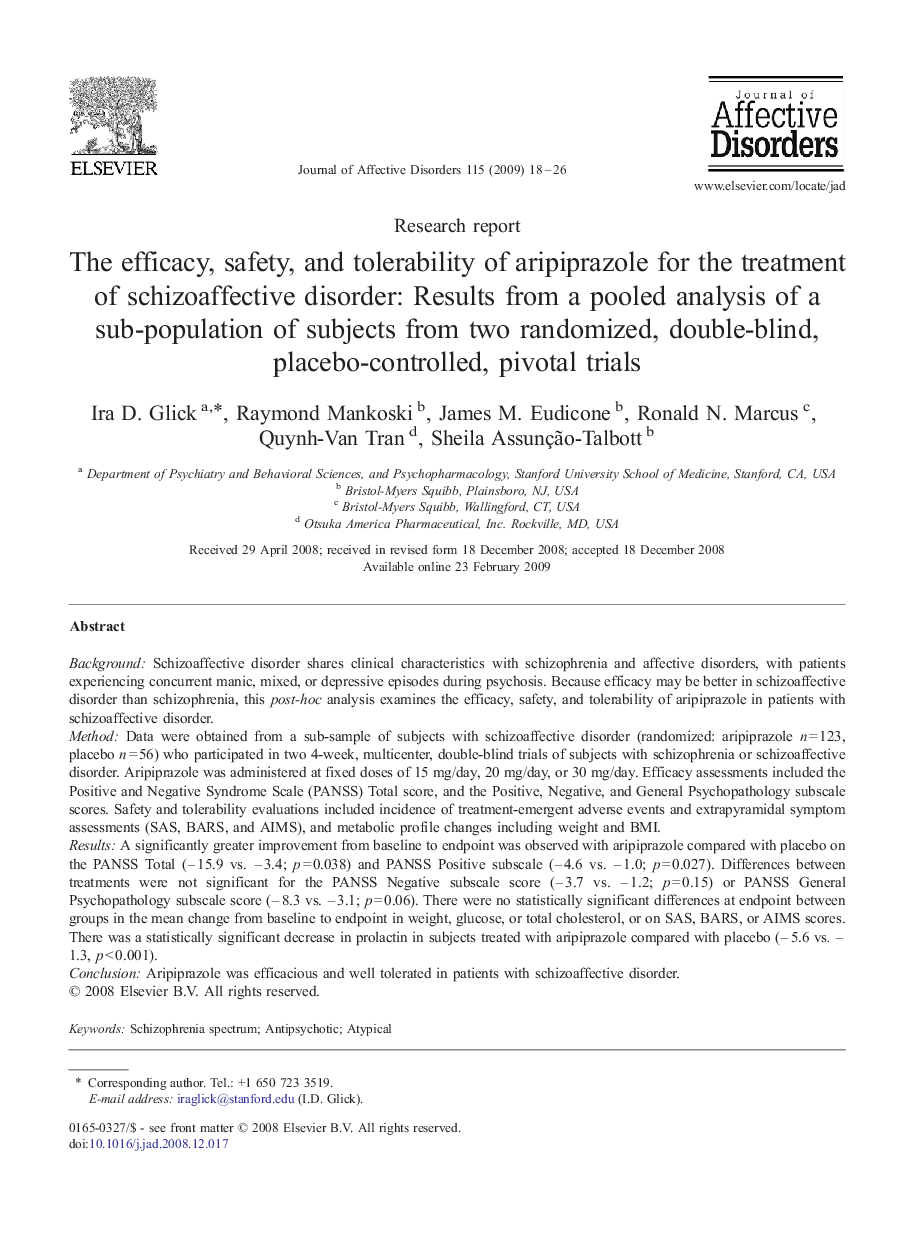| Article ID | Journal | Published Year | Pages | File Type |
|---|---|---|---|---|
| 6236704 | Journal of Affective Disorders | 2009 | 9 Pages |
BackgroundSchizoaffective disorder shares clinical characteristics with schizophrenia and affective disorders, with patients experiencing concurrent manic, mixed, or depressive episodes during psychosis. Because efficacy may be better in schizoaffective disorder than schizophrenia, this post-hoc analysis examines the efficacy, safety, and tolerability of aripiprazole in patients with schizoaffective disorder.MethodData were obtained from a sub-sample of subjects with schizoaffective disorder (randomized: aripiprazole n = 123, placebo n = 56) who participated in two 4-week, multicenter, double-blind trials of subjects with schizophrenia or schizoaffective disorder. Aripiprazole was administered at fixed doses of 15 mg/day, 20 mg/day, or 30 mg/day. Efficacy assessments included the Positive and Negative Syndrome Scale (PANSS) Total score, and the Positive, Negative, and General Psychopathology subscale scores. Safety and tolerability evaluations included incidence of treatment-emergent adverse events and extrapyramidal symptom assessments (SAS, BARS, and AIMS), and metabolic profile changes including weight and BMI.ResultsA significantly greater improvement from baseline to endpoint was observed with aripiprazole compared with placebo on the PANSS Total (- 15.9 vs. - 3.4; p = 0.038) and PANSS Positive subscale (- 4.6 vs. - 1.0; p = 0.027). Differences between treatments were not significant for the PANSS Negative subscale score (- 3.7 vs. - 1.2; p = 0.15) or PANSS General Psychopathology subscale score (- 8.3 vs. - 3.1; p = 0.06). There were no statistically significant differences at endpoint between groups in the mean change from baseline to endpoint in weight, glucose, or total cholesterol, or on SAS, BARS, or AIMS scores. There was a statistically significant decrease in prolactin in subjects treated with aripiprazole compared with placebo (- 5.6 vs. - 1.3, p < 0.001).ConclusionAripiprazole was efficacious and well tolerated in patients with schizoaffective disorder.
